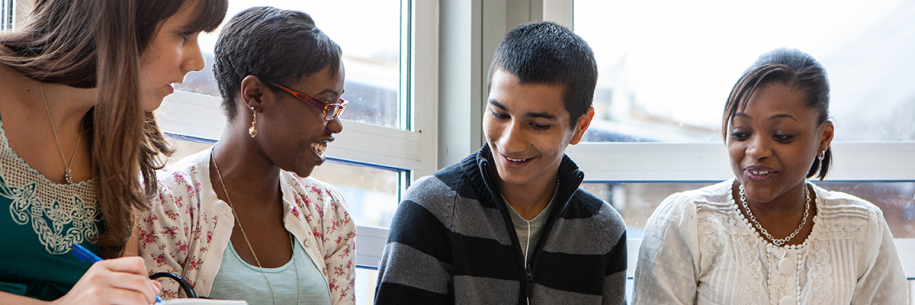
Breadcrumb
- Essential Partners
- Our Stories
- News and Notes
- Dialogue, Race, and Equity in the Religious Studies Classroom
Dialogue, Race, and Equity in the Religious Studies Classroom

“Engaging the work of racial and religious equity through dialogue requires all students to reflect on how these issues connect to their lives, to name their own commitments to pursuing equity, and to become more comfortable in discussing issues of equity.”
In a recent article in Religious Studies News’ Spotlight on Teaching, Shenandoah University faculty member Kevin Minister writes about the changes that took place in his classroom as a result of deploying Reflective Structured Dialogue.
“Most students who identify as white tended to shrink in their chairs and avoid eye contact whenever my classes discussed race,” Minister writes. “Naming this dynamic and the privilege associated with being able to evade speaking about race changed little. Discomfort still dripped from their downturned eyes and shoulders. I could see how this shifted responsibility for the discussion disproportionately onto students of color and caused many students to disengage.
“Things finally changed when I began teaching through dialogue, normalizing the expectation that everyone in the class would speak to the course content in light of their experiences. Engaging the work of racial and religious equity through dialogue requires all students to reflect on how these issues connect to their lives, to name their own commitments to pursuing equity, and to become more comfortable in discussing issues of equity.
“My approach to dialogue comes from training in Reflective Structured Dialogue (RSD), developed by Essential Partners. RSD uses timed reflection and responses to questions aimed to create mutual understanding by eliciting complex stories from participants’ lived experience that have influenced their values, commitments, and ideas. Those stories become the foundation for a curious conversation about different perspectives. Because dialogue is grounded in structured reflection on the experiences of all participants in relation to the course content, it differs from my class discussions, which invite voluntary analysis of ideas in a free-flowing format that may not involve reflection on personal experience.
“As Lauren Barthold observes, ‘The result is that in dialogue there is a re-orientation towards underlying meanings and values that expose a fundamental human connection with the other; our stories about others, about ourselves, and about the nature of our relationship begin to change.’ I have come to employ dialogic pedagogy in all of my courses at Shenandoah University, most of which are offered as part of the general education curriculum for our two thousand undergraduate students pursuing professionalized degree programs oriented toward healthcare, the performing arts, education, and business.”
You can read the rest of Minister's fascinating article at Religious Studies News.
Interested in learning more about Reflective Structured Dialogue in higher education? Read more about our work on campuses and in classrooms, register for an upcoming workshop, or schedule a call with an expert practitioner.